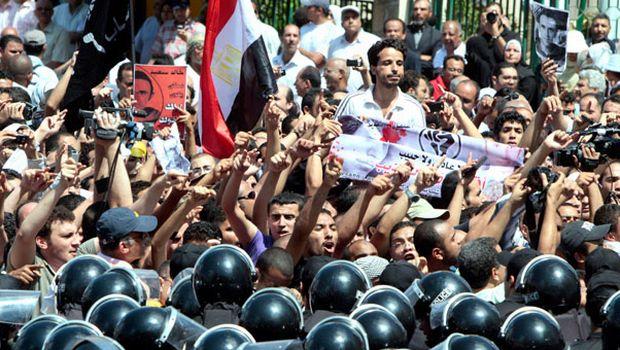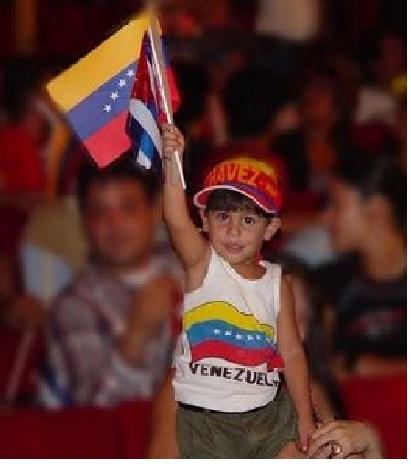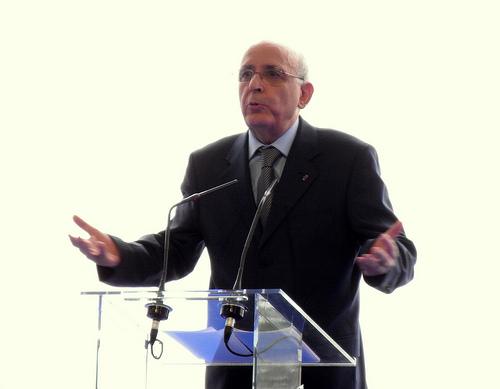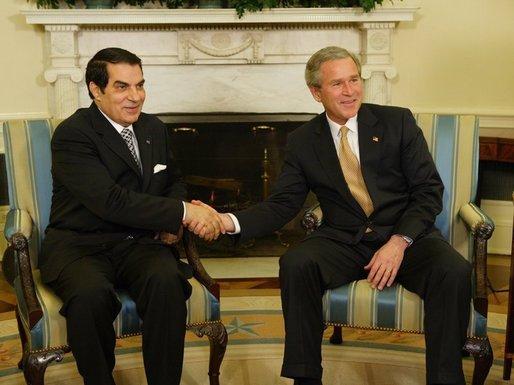
Regime Change Redux
Ever day U.S. soldiers risk and lose their lives ostensibly for the cause of Middle Eastern democracy, so why isn’t Washington more firmly supportive of democracy in Egypt?

Ever day U.S. soldiers risk and lose their lives ostensibly for the cause of Middle Eastern democracy, so why isn’t Washington more firmly supportive of democracy in Egypt?
For its strains of homophobia and anti-Semitism, Egypt’s Muslim Brotherhood wouldn’t get my vote, but for its fight against both religious extremism and secular authoritarianism it gets my respect.

Feb. 2 marks the 12 year anniversary of the inauguration of President Chavez and the beginning of the Bolivarian Revolution. Some of Venezuela’s most impressive achievements that we want to celebrate include: A reduction in poverty by 44% between 1998 and 2008 according to the United Nations Development Programme and the OAS, a fall in unemployment from 16.8% in 2003 to 7% in 2010, an increase by 10 places on the Human Development Index of the United Nations from 1998 to 2008, and the near obliteration of illiteracy.

The “Tunisian Miracle” of dictator Ben Ali offered economic progress in exchange for civil liberties and thus sowed the seeds of discord.

Tunisia is not the only democracy movement in the Muslim world, but will the United States provide consistent support to them all?
Will Tunisia be the beginning of the Arab world’s 1989?

The United States has a real opportunity to encourage Islamists to express their frustrations through peaceful means.

Keeping our Latin American neighbors seemingly independent, but still supportive of U.S. corporations, requires new methods.
Ecuador’s recent crisis proves that a decisive and unified response from the international community can help determine the outcome of an illegitimate coup.
The Central American nation’s woes continue to rage despite Secretary of State Clinton’s insistence to the contrary.
Iraq and Afghanistan may be a lot less ready for democracy than we think.
President Obama said, in his 2009 speech in Accra, Ghana, that America should support strong institutions and not strong men. However in the case of Rwanda, this has been no more than rhetoric. Rwandans, like most Africans, cheered Obama’s election, hoping that it might signal a new, more peaceful and cooperative relationship between the U.S. and Africa, but Obama has expanded AFRICOM, the U.S. Africa Command, and now he remains silent as Rwanda’s strongman, President Paul Kagame, prepares a sham presidential election to retain his brutal grip on power.
Obstructionist Republicans. Compromised Democrats.
Entrenched corporate lobbies. Deficit hysterics.
Deepening long-term joblessness. Restless voters.
If we don’t want 2010 to be the year of the Tea Party, it’s up to progressives to lead!
Empowering communities to make real spending decisions is the first step toward restoring public faith in elected officials.

It looked peaceful on the surface. But as Laura Carlsen reports, the Colombia elections were anything but.